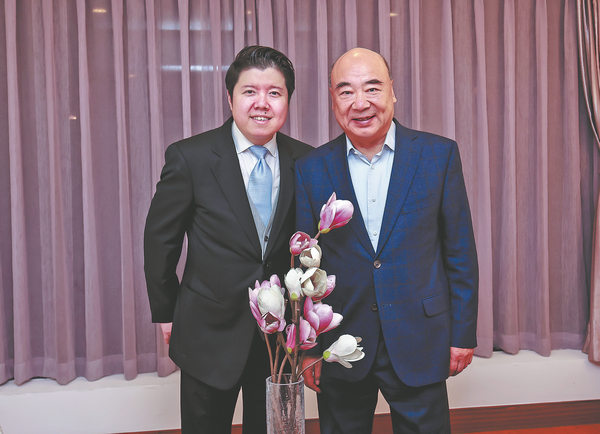

"Again, it was the idea of Yu to create this new piece based on the 2013's Nine Odes. Without lyrics and therefore no language barrier, the music will travel to more places, allowing the world to enjoy the poems, which hold an important place in classical Chinese literature," says Zhou.
In the new version, Yu says, the erhu plays a key role, like a narrator telling the audience about the different characters portrayed in the poems, such as the Lord and Lady of the Xiang River and the Mountain Spirit.
"Dedicated to gods, many poems express human emotions, particularly themes of love, longing, separation and the transient nature of life," says Yu. "These poems provide valuable insights into the culture, beliefs and rituals of ancient Chinese people."
Erhu virtuoso Lu is known for performing contemporary music pieces using the traditional instrument. For the 54-minute-long Nine Odes, Lu says that it is a test of physical strength and endurance.
"The composer wrote the music in a unique way, allowing the erhu to have a conversation with other classical musical instruments. These instruments work together harmoniously while also 'confronting' one another," says Lu, adding that for traditional Chinese musical instruments like the erhu, new contemporary pieces are valuable since they inspire creativity in the players based on their solid techniques, which keep the old instruments alive and fresh.
Launching the Beijing Music Festival in 1998, now considered one of the largest classical music events in the capital every autumn, Yu is devoted to commissioning new music works and supporting young musicians.
The first commissioned work was a cello concerto by American composer Philip Glass, which premiered on Oct 21, 2001, with British cellist Julian Lloyd Webber and the China Philharmonic Orchestra under the baton of Yu.